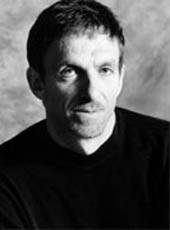The Nativity Story

Covering the 2006 movie "The Nativity Story," about the story of Mary and Joseph
and their journey together as they bring the Messiah into the world.
~~One Family. One Journey. One child, who would change the world. Forever.~~
About Me

- Name: queen_spoo
- Location: Washington, D.C.
I am a spoo.
What do spoo do?
Mainly, they *sigh.*
What are spoo?
Contact Me
Friday, September 29, 2006
Thursday, September 28, 2006
"Nativity" mentioned on BeliefNet.com
Christmas Is Coming: "The Nativity" Heads to the Big Screen
One of the movies I am most excited about seeing this upcoming movie season is New Line's version of Jesus' birth, "The Nativity Story." And if you are as interested as I am in how Hollywood is going to treat the Christmas story this time around, well, the official movie trailer is available online.
While it is true I scoffed ever-so-slightly when I heard New Line was going to develop the project, all of my concerns about this story--that it wouldn't be given the respect and artistic merit worthy of the big screen--were assuaged whem I heard that teen actress Keisha Castle-Hughes ("Whale Rider") had been cast as Mary and that Mike Rich, the screenwriter, is a Christian.
If all of my LA/Hollywood insider friends are correct with their information, the movie will be less of a sappy Hallmark greeting card and more of a glimpse at the very human emotions Mary and Joseph felt as they embarked on their journey to Bethlehem. The movie will trace the life of Mary and Joseph prior to the birth of Christ and follow the family through Mary and Joseph fleeing to Egypt after King Herod's mandate to kill baby boys under the age of two.
So while Hollywood has been somewhat erratic in its attempts to tap into the market that made "Passion of the Christ" a blockbuster, everything I am hearing and reading confirms that this time Hollywood has a hit--one most Christians won't want to miss. (Click here to see the trailer.)
Wednesday, September 27, 2006
Analysis from a Movie Screening
I was at the first screening for this movie in the LA area. They wanted Christian college students so they rented a bus and got some kids from our school to come down and see it. It was a surprisingly well done film. It's definitely not Oscar material, but it's better than any Christian movie a Christian could make (this is sad for me to admit, but it's true none-the-less). Besides some bad editing, a few minor details overlooked, and some uncessary additions, the message and story are still healthy and alive. The acting on the part of Keisha Castle-Hughes and Oscar Isaac was definitely one of the high points. The movie did have some bad transitions and a bad opening, but they admitted before it began that the special effects were not done along with music and a few other minor things. I didn't get into the focus group (because I didn't give them the top rating when they went around and asked us about how we answered on their review sheet...), but a friend of mine talked to an employee of New Line who was able to point out the director and writer. Solid film, should be better when it comes out. I'd moderately recommend it for both secular and Christian movie-goers at this point in time.
Monday, September 25, 2006
Interview with Alexander Siddig (Gabriel)

How did playing the role of the archangel Gabriel compare to other roles you have played?
What was your most memorable experience on (or off) the set during the filming?
How did you decide to portray an angel, a divine/supernatural being?
Did the different cultures you grew up around influence your performance/portrayal?
Did making the movie evoke any memories from your childhood performance as the innkeeper?
Are there any other comments you would like to make about making this film?
Special thanks to Mel from SidCity.net for her assistance.
Tuesday, September 19, 2006
"Nativity" soundtrack to be released
 On October 31, 2006, the soundtrack for "The Nativity Story" will be released, entitled "The Nativity Story: Sacred Songs." Although the Amazon listing for it says [Soundtrack], the title could indicate that this album might be more of an inspirational album rather than the score. (like created for "The Prince of Egypt" and "The Passion of the Christ") It will be clarified here as soon as can be determined. You can pre-order it here. According to this site, the soundtrack can also be pre-ordered here, but lists the release date as December 5, 2006.
On October 31, 2006, the soundtrack for "The Nativity Story" will be released, entitled "The Nativity Story: Sacred Songs." Although the Amazon listing for it says [Soundtrack], the title could indicate that this album might be more of an inspirational album rather than the score. (like created for "The Prince of Egypt" and "The Passion of the Christ") It will be clarified here as soon as can be determined. You can pre-order it here. According to this site, the soundtrack can also be pre-ordered here, but lists the release date as December 5, 2006.Saturday, September 09, 2006
"Nativity" to be shown at Heartland Film Festival
 According to the tip-off from Peter Chattaway, "Nativity" will be given a screening at the Heartland Film Festival, in Indianapolis, on October 22. Catherine Hardwicke will also be there to answer questions.
According to the tip-off from Peter Chattaway, "Nativity" will be given a screening at the Heartland Film Festival, in Indianapolis, on October 22. Catherine Hardwicke will also be there to answer questions.Additional events include an opportunity to meet filmmakers and special guests at the Filmmakers’ Brunch; the World Premiere of "Air Buddies" at the Kids’ Movie Party; and an exclusive peek at film clips from the upcoming and much-anticipated New Line Cinema film “The Nativity Story” which includes a special Q&A with Director Catherine Hardwicke all on October 22.
Tuesday, September 05, 2006
Interview with Mychael Danna (composer)

How did scoring this film differ—if at all—from other movies that you have composed for?
I think it certainly has more meaning to me personally just because my earliest memory is sitting in church listening to my dad sing Handel’s “Messiah.” It goes back to my very beginning where I became affected by music written for the Nativity.
That said, the work on the film is exactly as any other film. It’s the emotional meaning to me that is higher than usual because it goes back so far.
What helped you with your decisions for instruments to use and was there any influence from ancient musical melodies or instruments for your score?
That’s a good question. I did a lot of research on music of Judea and Palistine at the time. I learned a lot and then decided not to use any of it. The reason for that is I find that ever since Peter Gabriel’s work for “The Last Temptation of Christ” composers have all approached the same era and subject matter with the exact same things. We hear all the same instruments and the same vaguely Middle Eastern sound. The fact is, nobody really knows what the music of that time was. The second temple was destroyed by the Romans around 70 AD and at that point, all of the music of the Jews was pretty much destroyed. Also, out of mourning they banned music from their synagogues from that point on. So nobody knows anything -- other than a few vague images in the Bible – what was going on musically at that time. Every film score that is written for that area uses the duduk, which is an Armenian instrument and probably has nothing to do with that area. They use Egyptian and Moroccan music. I’m kind of tired of that approach. I think it’s time for something fresh.
The other thing is that I think this story has its big resonance not in the Middle East. It’s not really a story about the Jews. It’s really a story about Christians and about Europe and about the incredibly profound event. The meaning of this event really resonated through the entire civilization of the West. This event this meant so much and affected every moment in life in a civilization was in Medieval Europe, the Middle Ages and Renaissance Europe. So that’s where I’ve gone to for the inspiration for the music.
I’m using early European instruments from the 12th-14th centuries. I’m using a lot of melodies from the early Christian church: plain chant, Gregorian chant. I’m also using some very early Christmas melodies, for instance “O Come, O Come, Emmanuel,” which is a very ancient melody. I’m using other tunes like “Of the Father’s Love Begotten,” which goes back to the late Roman Empire when the empire became Christian from about the year 400. I’ve been using melodies from before 1600, or something like that.
It’s a story of Europe and a story about the west and Western Civilization. That’s really been the inspiration.
What was the most fun and the most frustrating about scoring this movie?
It’s been really fun to work with melodies that I’ve known all my life like “O Come, O Come Emmanuel” which is just a fantastic melody. It’s fun to work with those things that have so much emotional power for me personally. That’s really been the most fun is to rediscover and redeploy those melodies and to be able to tell this story again. It’s been told countless times, but to be able to tell it again in a film setting using my expertise in film scoring has really been fun. To be honest, it hasn’t been frustrating. All I can think of are the fun parts.
Did you have any personal interest that attracted you to score this film?
I’ve known these melodies all my life and I’ve sung them since I was a little kid. I’ve sung in choirs right from the time I was 7 or 8. The other fun thing is that I used to be a church choir director and an organist. Sometimes I get flashbacks when I’m working on this.
What do you want your music to get across as the enhancement of the visuals?
Just to help to show the resonance. On screen, we’re seeing a young girl in Judea in a tiny village riding on a donkey. That’s what’s on screen, but what that means to us as people who have grown up with that imagery and grown up with that icon, it’s such a powerful thing to us. On screen, there’s nothing particularly special about it but emotionally it means so much. That’s the thing the music can say. That’s been the fun of the music, to remind people to look at this little girl riding this donkey. This is something that’s going to have connotations for thousands of years.
Did you audition to compose the score or were you approached by the producers specifically? If it's the latter, then why do you think you were approached?
Ironically, I think I was approached because of my expertise with ethnic instruments. Most of the scores that have handled this material in the last 10-15 years have all approached it with ethnic instruments and kind of made an ethnic soup of all kinds of different things. I think I was approached because I am sort of an expert in that myself. Ironically, that’s not the approach I’m taking.
Do you have any other comments that you would like to make about your experience with composing for this movie?
I’m not finished yet. I still in the middle of it and there’s still lots of excitement yet to come.



